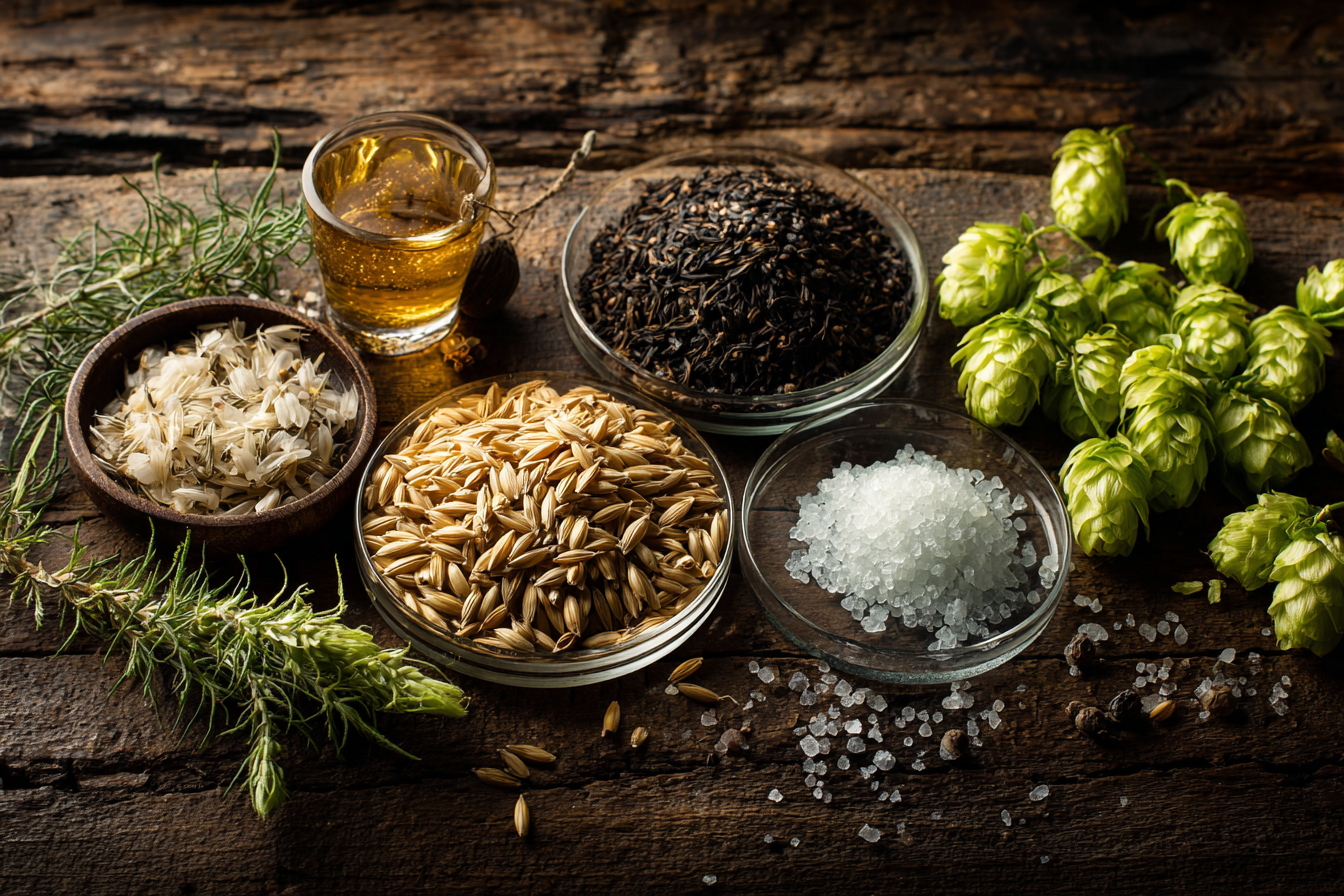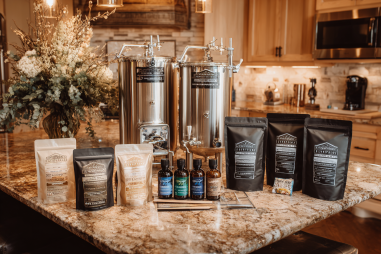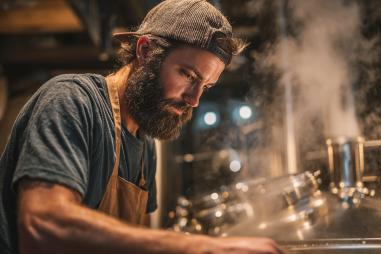Irish Extra Stout is renowned worldwide for its rich, bold character, dark color, and creamy mouthfeel. But what gives this iconic beer its distinctive qualities? The answer lies in the careful selection and interplay of its brewing ingredients. From the choice of malts to the type of yeast and water composition, each component plays an essential role in crafting an authentic Irish Extra Stout. Let’s dive into the key brewing ingredients that define this beloved style and explore how they work together to create the perfect pint.
Brewing Basics: Laying the Foundation
The art of brewing beer starts with four fundamental ingredients: malted barley, hops, yeast, and water. Each ingredient contributes unique characteristics that influence the beer’s flavor, aroma, color, and texture. In Irish Extra Stout, these elements are carefully combined and balanced to achieve a distinctive profile that is both robust and smooth. Understanding these basics is crucial before we delve into the specifics that differentiate Irish Extra Stout from other stouts and beers.
The Importance of Malt Selection and Roasting
Malt is arguably the cornerstone of any beer, and in Irish Extra Stout, it takes center stage. The foundation malt typically comprises pale malt, which provides the sugars necessary for fermentation. However, it is the roasted malt varieties that give this stout its signature dark color and complex flavor profile.
The malt bill for an Irish Extra Stout often includes:
- Pale Malt: Serves as the base malt, delivering fermentable sugars and body.
- Roasted Barley: Unlike roasted malt, roasted barley is unmalted barley that’s kilned intensely. It adds a dry, coffee-like bitterness and deepens the beer’s dark hue.
- Chocolate Malt: Adds subtle chocolate notes and smooths out the roastiness.
- Crystal or Caramel Malt: Sometimes used in small quantities to impart sweetness and complexity.
The roasting process itself is critical. Roasted barley, in particular, must be carefully produced to avoid overpowering bitterness while delivering the trademark flavors and aroma. This combination of malts yields a rich, roasted taste with hints of coffee, dark chocolate, and slight caramel — hallmarks of the style.
Types of Hops Used in Irish Extra Stout
While malt dominates the flavor profile, hops are essential for balancing sweetness and adding subtle complexity. Irish Extra Stouts typically utilize traditional bittering hops that impart moderate bitterness without overwhelming the palate.
Common hop varieties found in Irish Extra Stout include:
- East Kent Goldings: A quintessential English hop, known for its mild, earthy, and floral character.
- Fuggle: Another classic English hop with woody and herbal notes, complementing the malt-forward nature of the stout.
The hop profile in Irish Extra Stout is restrained compared to other beer styles. It provides enough bitterness to counterbalance the sweetness of the malts but maintains a smooth, harmonious finish. The focus remains on the interplay of roasted malt flavors rather than hop aroma or sharp bitterness.
Yeast Strains and Fermentation Impact
Yeast does more than just convert sugars into alcohol and carbon dioxide; it contributes significantly to the flavor and mouthfeel of the beer. The yeast strains used in brewing Irish Extra Stout are typically clean fermenting ale yeasts. These yeasts ferment at warmer temperatures and are known for their moderate ester production, which can add subtle fruity and spicy notes that enhance the beer’s complexity.
Some of the yeast characteristics that influence Irish Extra Stout include:
- Clean Fermentation: Produces a beer that allows malt and roasted flavors to shine without an overpowering yeast character.
- Moderate Attenuation: Leaves enough residual sweetness to balance the bitterness from roasted barley and hops.
- Carbonation Level: Usually medium to moderate, contributing to the beer’s creamy mouthfeel.
The fermentation process is typically well-controlled to bring out these traits, ensuring the beer’s robustness and balance.
Water Profile and Its Influence
Water is the most abundant ingredient in beer, yet its mineral content profoundly impacts the brewing process and the final product’s taste and texture. Traditional Irish Extra Stout brewing regions often have soft water with low mineral content, which is well-suited for the style.
Key water characteristics for Irish Extra Stout include:
- Low to Moderate Hardness: Prevents harsh flavors and preserves the beer’s smooth palate.
- Balanced Sulfates and Chlorides: Chlorides enhance malt sweetness and roundness, while sulfates contribute dryness and bitterness. Irish Extra Stouts tend to have a chloride-to-sulfate ratio favoring smoothness.
- pH Control: Maintaining proper mash pH (around 5.2-5.5) is vital for extracting the best flavors from malt.
The water profile’s subtle influences contribute to the smooth mouthfeel and the rounded, balanced taste distinctive to Irish Extra Stout. Many brewers adjust their water chemistry to mimic these traditional profiles for authenticity.
How Ingredients Affect Taste and Color
The defining characteristics of Irish Extra Stout — its deep, nearly opaque black color and complex flavor spectrum — are achieved through the synergy of all its brewing ingredients.
- Color: Predominantly influenced by the roasted barley and dark malts, which infuse the beer with intense hues ranging from deep brown to jet black.
- Aroma: A blend of roasted coffee, dark chocolate, and subtle malt sweetness with faint earthy hop nuances.
- Flavor: Malt-driven with prominent roasted notes, complemented by moderate bitterness from hops. The yeast’s clean profile helps highlight the malt character without adding overpowering esters or phenols.
- Mouthfeel: Smooth and creamy, often enhanced by moderate carbonation and traditionally served with nitrogen to create the characteristic silky texture.
When each ingredient does its part, the result is a beer with a harmonious balance of bitterness, sweetness, and roastiness — complex but approachable.
The Harmony of Ingredients in Crafting Irish Extra Stout
Brewing Irish Extra Stout is a delicate dance of balancing malt, hops, yeast, and water to produce a beer that honors tradition while offering a satisfying sensory experience. The malts deliver depth and color, hops add necessary balance, yeast imparts subtle nuances, and water shapes the mouthfeel and overall profile.
It’s this interplay, this ingredient synergy, that makes Irish Extra Stout a timeless classic. Whether enjoyed in Dublin or brewed elsewhere, understanding these key components brings a deeper appreciation for the craftsmanship behind each robust pint.







